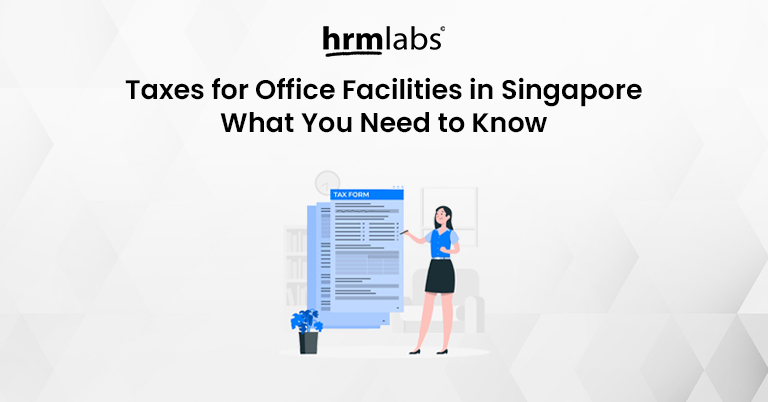Taxes are a fact of life, and every business owner in Singapore knows that. But what about taxes for office facilities? Are you aware of all the different taxes that may apply?
If you run a business in Singapore, you probably know that there are various types of taxes that you need to pay. But did you know that there are also ways to save on tax for office facilities in Singapore?
What is Tax for Office Facilities?
Tax for office facilities in Singapore is a type of property tax that applies to non-residential properties. Such as offices, factories, warehouses, shops and hotels. Property tax is calculated based on the annual value of the property. Which is the estimated gross annual rent that the property can fetch if it is rented out.
The property tax rate for non-residential properties is 10% of the annual value. However, there are some exceptions and reliefs that can reduce the amount of tax payable.
What are the Exceptions and Reliefs for Tax for Office?
There are some situations where you may not need to pay property tax for office facilities in Singapore, or you may pay a lower amount. Here are some examples:
- If your office is located in a building that is used mainly for residential purposes, such as a mixed-use development. You may be eligible for a concessionary property tax rate of 4% instead of 10%. This applies if at least 90% of the total floor area of the building is used for residential purposes.
- If your office is vacant or under renovation for at least one month in a year. You may apply for a vacancy refund of property tax. You need to submit evidence such as utility bills, tenancy agreements or renovation permits to prove that your office was vacant or under renovation.
- If your office is affected by government land acquisition or redevelopment projects. You may apply for a remission of property tax. You need to submit evidence such as notices of acquisition or redevelopment plans to prove that your office was affected by the government projects.
What are the different taxes that may apply to my office facilities?
The following taxes may apply to your office facilities in Singapore:
- Goods and services tax (GST): GST is a consumption tax of 7% that is levied on most goods and services supplied in Singapore. This includes the rental or sale of office space, as well as the provision of office-related services, such as security, cleaning, and maintenance.
- Property tax: Property tax is a tax on the annual value of immovable property in Singapore. This includes office buildings and other commercial properties. The property tax rate for office buildings is 10% of the annual value of the property.
- Stamp duty: Stamp duty is a tax that is payable on certain types of transactions. Including the transfer of ownership of immovable property. If you are purchasing or selling office space in Singapore, you will be required to pay stamp duty on the transaction. The amount of stamp duty payable will depend on the purchase price of the property.
Why Should You Care About Tax for Office Facilities in Singapore?
You may wonder why you should care about tax for office facilities in Singapore, especially if you are not the owner of the property. Well, there are several reasons why you should:
- If you are a tenant of an office facility. You may be required to pay property tax as part of your rental agreement. This means that you need to factor in the property tax when negotiating your rent with your landlord.
- If you are a landlord of an office facility. You need to pay property tax as part of your business expenses. This means that you need to factor in the property tax when setting your rent with your tenant.
- If you are a buyer or seller of an office facility. You need to pay attention to the property tax implications of the transaction. For example, if you buy an office facility, you may be liable to pay property tax from the date of purchase. If you sell an office facility, you may be entitled to claim a refund of property tax from the date of sale.
How to stay informed about taxes for office facilities
There are a number of ways to stay informed about taxes for office facilities in Singapore:
- Visit the IRAS website: The IRAS website contains a wealth of information about taxes in Singapore, including taxes for office facilities.
- Subscribe to IRAS tax updates: You can subscribe to receive email updates from the IRAS about changes to tax laws and regulations.
- Consult with a tax professional: If you have any questions about taxes for office facilities, you should consult with a tax professional.
Conclusion
Tax for office facilities in Singapore is an important aspect of running a business in Singapore. By understanding the tax, the regulation and why you should care about it, you can manage your tax obligations effectively and save on unnecessary costs. We hope this article has been informative and fun to read. If you have any feedback or questions, feel free to leave a comment below.
Fun fact
Did you know that the IRAS offers a number of tax incentives for businesses that invest in energy-efficient office facilities? For example, businesses can claim a capital allowance for the cost of purchasing and installing energy-efficient equipment and fixtures.
So, if you’re looking to save money on taxes and reduce your environmental impact, consider investing in energy-efficient office facilities.



